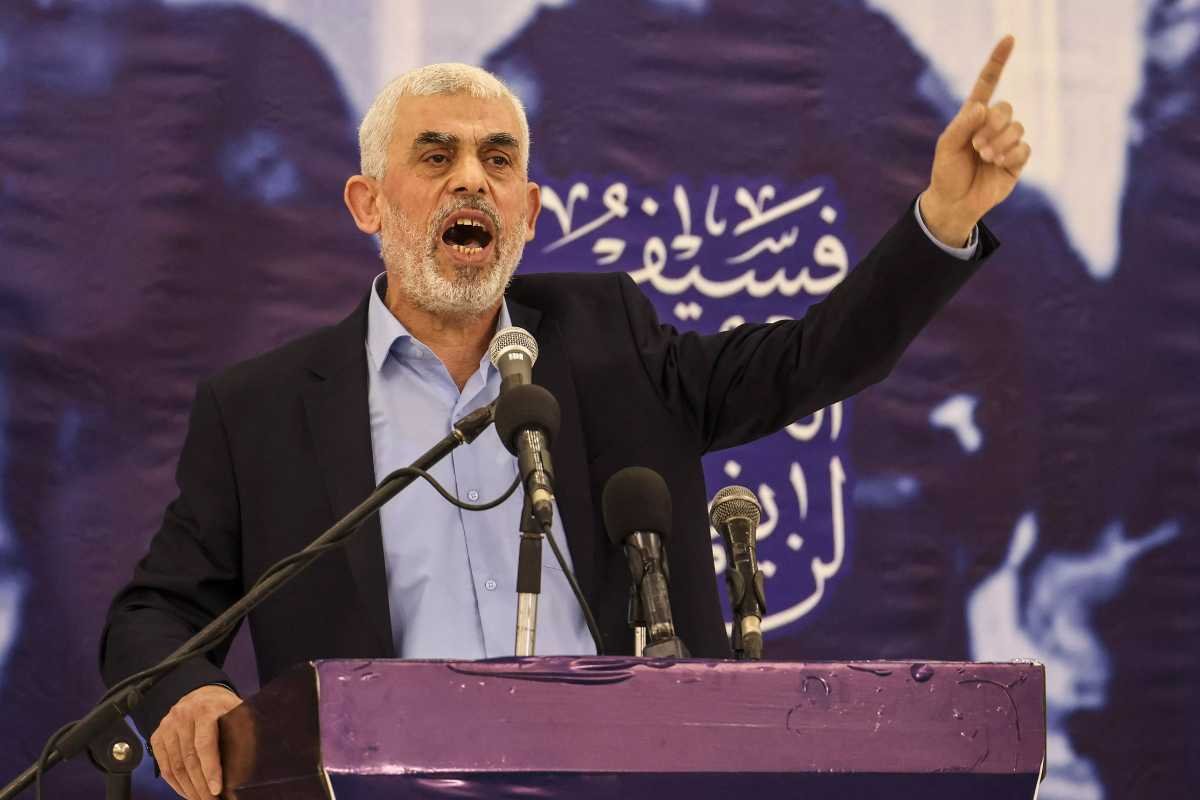Source – deccanchronicle.com
Federal prosecutors have formally charged Yahya Sinwar, the leader of Hamas, and five other senior members of the organization with orchestrating a series of terrorist attacks in Israel, including the deadly massacre on October 7th. The charges were detailed in a comprehensive criminal complaint that was unsealed on Tuesday, revealing the U.S. charges Hamas leaders for their involvement in violent activities over several years.
Initially filed in New York in February, the complaint names additional Hamas figures not previously suspected of direct involvement in the October 7th attacks. The complaint also confirms that 43 Americans were killed as a result of these terrorist acts. The other leaders charged include Ismail Haniyeh, formerly overseeing Hamas’s political office in Qatar; Muhammad Deif, the commander of Hamas’s military wing; Marwan Issa, deputy commander of the military wing; Ali Barakeh, a senior official based in Beirut; and Khaled Meshal, a former political leader still holding a significant position within the group.
Hamas Leadership Losses and Implications
The U.S. charges Hamas leaders have surfaced amidst an increasingly volatile geopolitical landscape, with two of the accused leaders, Muhammad Deif and Marwan Issa, having been killed in recent Israeli airstrikes in Gaza. Ismail Haniyeh, who was a prominent figure in cease-fire negotiations, was assassinated in Iran after a covert operation smuggled a bomb into his guesthouse. These developments underscore the ongoing conflict’s intensity and the significant losses within Hamas’s leadership ranks.
While Khaled Meshal and the late Ismail Haniyeh were not directly involved in the October 7th attacks, they were all outside of Gaza when the events took place, with Haniyeh residing in Doha before his assassination. The American and Israeli intelligence community had believed that the plans for the attack were tightly controlled, known only to a select few within Gaza, including Sinwar and Deif. This new information suggests that the U.S. government’s charges could potentially shed new light on the internal operations and decision-making processes of Hamas.
Political Ramifications and Continued Efforts
The unsealing of these charges comes at a critical time, as the White House continues its efforts to preserve cease-fire negotiations, especially in the wake of revelations that Hamas executed six hostages in Gaza, including a 23-year-old Israeli-American, Hersh Goldberg-Polin. His death has resonated deeply across the United States, heightening the emotional and political stakes of the ongoing conflict.
Attorney General Merrick B. Garland emphasized that the U.S. government is actively investigating the murder of Goldberg-Polin and other Americans as acts of terrorism. He reaffirmed the government’s commitment to pursuing justice and ensuring the safe return of American hostages still held by Hamas. Currently, seven Americans remain unaccounted for in Gaza, with three feared dead, and the fate of the remaining four uncertain.
U.S. charges Hamas leaders include conspiracy to murder U.S. citizens, conspiracy to finance terrorism, and conspiracy to use weapons of mass destruction resulting in death, among others. Some of these charges date back as far as 1997, reflecting a long history of violent acts attributed to Hamas. The complaint also details how Hamas has been funded through various channels, including donations, cryptocurrency, and financial transfers from the Iranian government.
The Justice Department had kept the charges sealed in the hope of apprehending Ismail Haniyeh and possibly other defendants. However, following the U.S. charges Hamas leaders, the department determined there was no longer a reason to keep the charges secret. This move marks a significant step in the U.S. government’s ongoing efforts to hold Hamas accountable for its actions and to combat terrorism on a global scale.
Also read: High-Stakes Negotiations on Gaza Deal Face Uncertain Future









